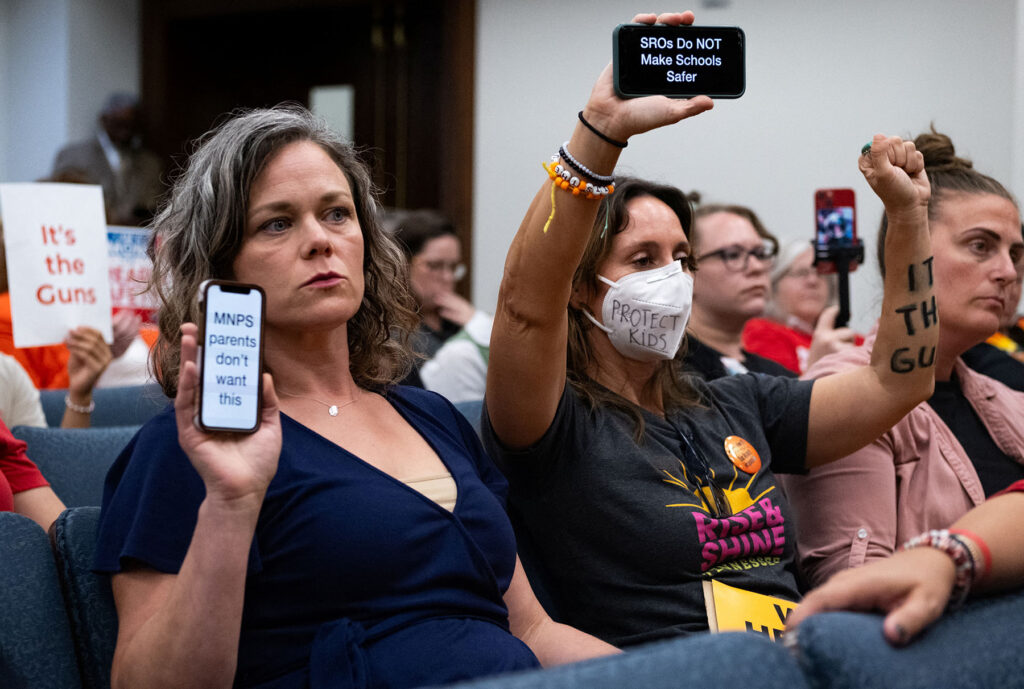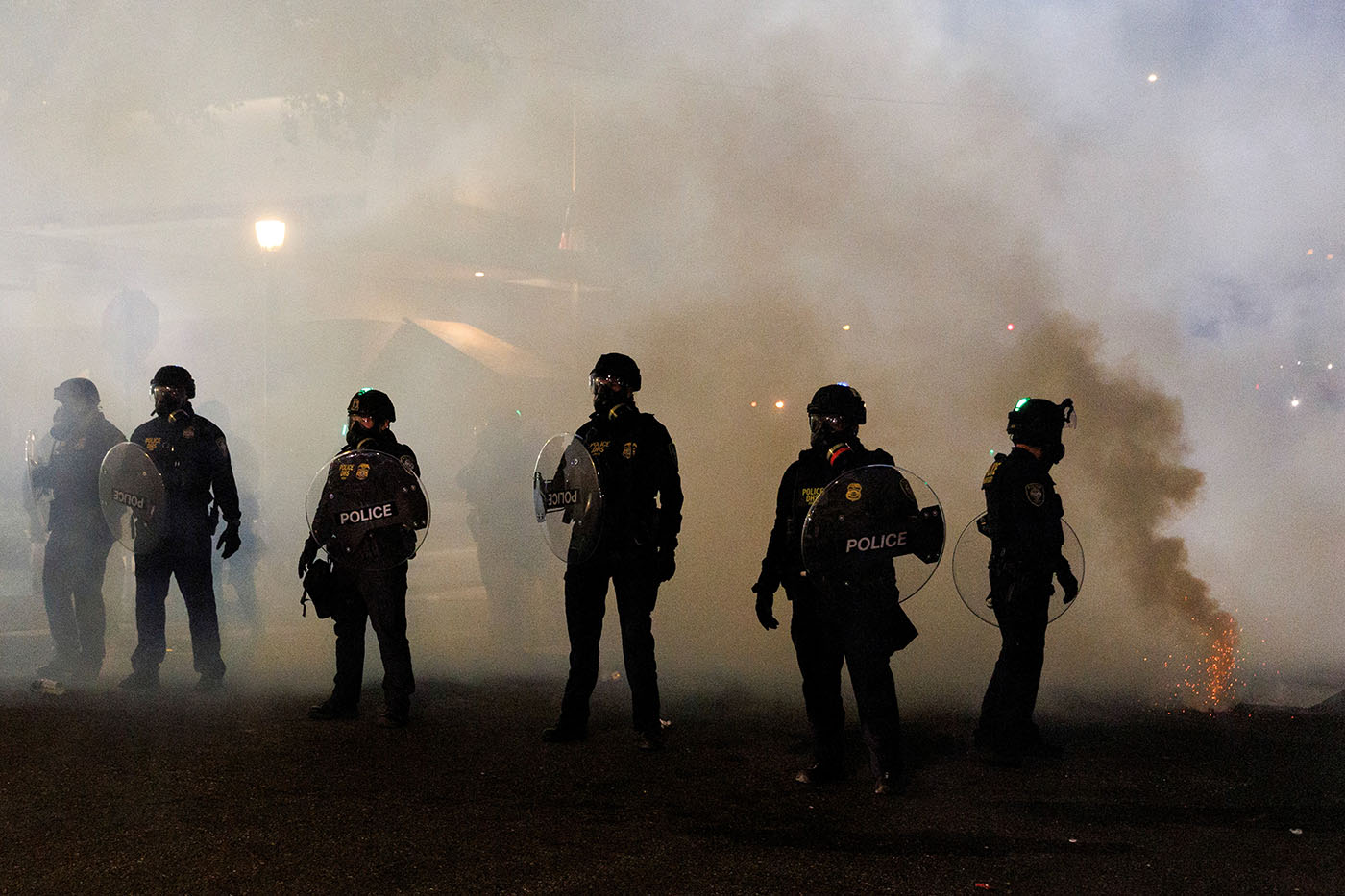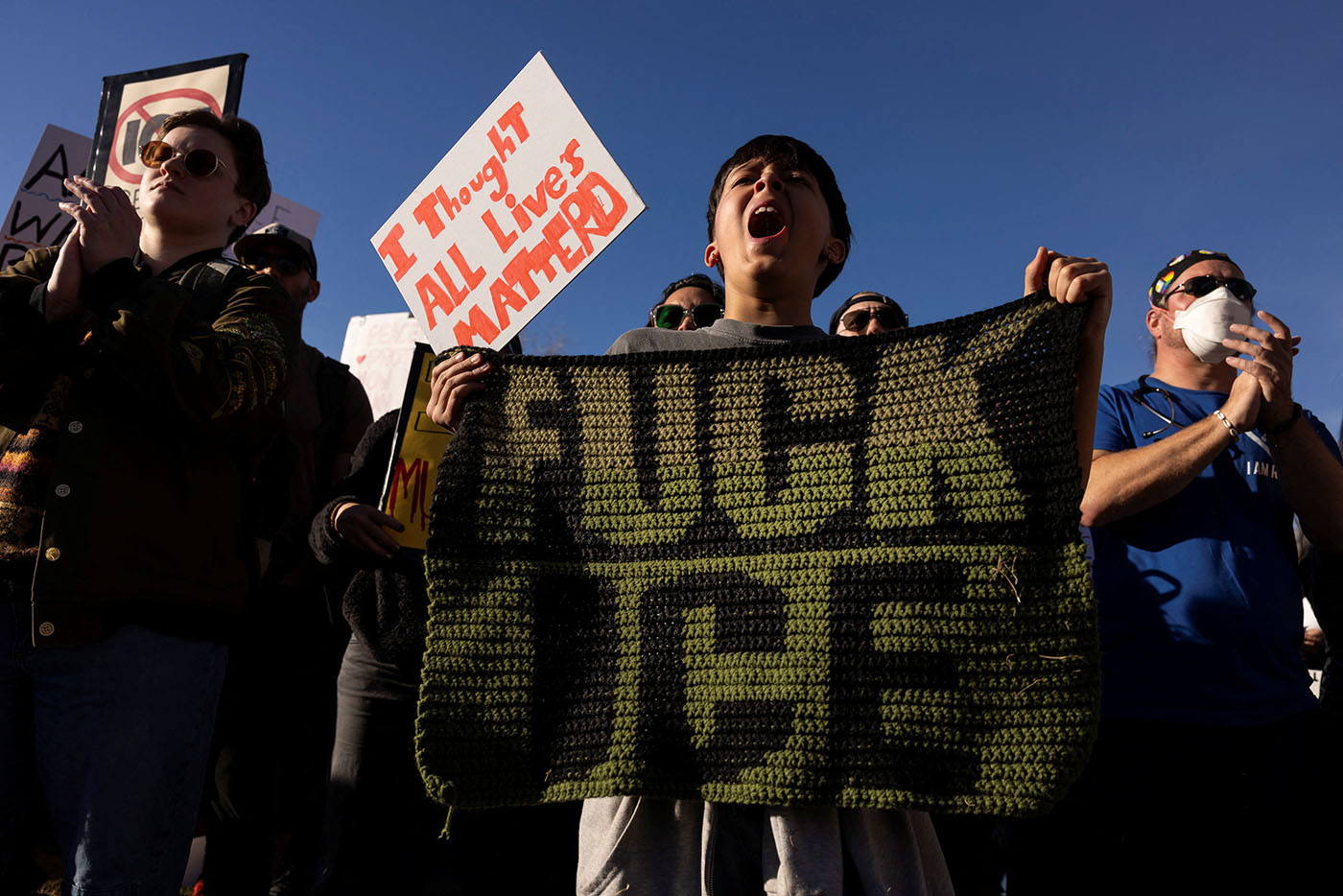A judge blocked a new rule banning signs in the galleries of the Tennessee House of Representatives, following a lawsuit filed on behalf of three women who were expelled for protesting during a special legislative session on gun legislation.
The lawsuit, filed in Davidson County Chancery Court by the Tennessee chapter of the American Civil Liberties Union (ACLU) on Aug. 23 against Republican House Speaker Cameron Sexton, the chief clerk, the sergeant-at-arms and the colonel of the Tennessee Highway Patrol, argued that the rule infringes upon citizens’ First Amendment rights to freedom of speech, assembly and petition.
“Signs, and the action of silently holding them, are forms of speech and are protected under the First Amendment,” the filing reads. “Indeed, the right to assemble and protest through silent mediums of expression is well recognized in First Amendment jurisprudence.”
Chancellor Anne Martin signed an order temporarily blocking the enforcement of the new rule, adopted during the first legislative session, hours after the lawsuit was filed.
“We applaud the court for taking swift action to protect the free speech rights of Tennesseans,” said Kathryn Sinback, executive director of ACLU of Tennessee, in a statement following the judge’s order. “Democracy depends on people’s ability to express their opinions to their elected representatives on issues they care about, and this unreasonable rule stood in the way of people fully participating in the democratic process.”
The Office of the Speaker did not respond to requests for comment, and the Tennessee Highway Patrol, the law enforcement agency that enforces House rules, declined to comment, citing pending litigation. On Aug. 24, Attorney General Jonathan Skrmetti filed a response on behalf of Speaker Sexton and his co-defendants, accusing the court of overstepping its authority and arguing that rule does not violate First Amendment protections because it “forbids all signs from being brought into the Legislative Galleries, not just signs expressing certain viewpoints.”
On Aug. 28, Chancellor Martin affirmed the decision after an emergency hearing requested by the attorney general, in which she found that the “sign ban is patently unreasonable” and “so broad that it encompasses behavior that is not disruptive, as is the case here.”
“Plaintiffs have shown a likelihood of success on the merits of their facial First Amendment challenge to Rule 4 as it relates to banning all signs,” Martin wrote.
Per the judge’s order, the rule cannot be enforced while the lawsuit is ongoing.
The three women listed as plaintiffs protested on Monday alongside members of Tennessee Rise and Shine and Moms Demand Action, two groups focused on gun violence and school safety. State troopers removed them from the hearing for holding yellow pieces of paper that read: “1 KID > ALL THE GUNS.”
It was the latest chapter in an increasingly bitter battle over guns following a fatal school shooting in Nashville earlier this year.
In March, an assailant entered a small, private Christian school in Nashville’s Green Hills neighborhood with assault-style weapons and opened fire, killing six people, including three students. The shooting sparked a rally of thousands outside of the Tennessee State Capitol calling for gun safety reform, the crowd holding signs stating “Thoughts and prayers are useless to dead children,” “Book bags not body bags,” and “2nd graders over 2nd amendment.”
Three Democratic House representatives joined the protest, and two of them — Reps. Justin Jones and Justin Pearson — were initially expelled from the legislature for their participation and then quickly reinstated after significant public outcry.
The right to peacefully assemble gives people a means to protest government authority, but the right isn’t limitless. Government and law enforcement have certain powers to reasonably limit the time, place and manner of protest to ensure public safety and to arrest lawless actors.
It can be challenging to distinguish between reasonable restrictions aimed at maintaining peace and unreasonable restrictions intended to chill dissent. But the ACLU’s lawsuit claims that the three women’s protest did not make any significant disruption to the public proceedings that might have justified their removal.
“A sign the size of an average piece of paper cannot obstruct the view of participants or committee members and is not disruptive to the proceedings,” the filing reads. “It does not make noise or emit light.”
According to Ken Paulson, director of The Free Speech Center at Middle Tennessee State University, the new rule is part of a “pattern of practices that are designed to limit criticism of the legislative body.”
“Americans have a constitutional right to petition. What we saw with those little signs was real-time petition [and] is as pure as petition can get,” Paulson said. “They’re sitting six-feet from the people who are going to make these decisions, and they’re conveying the public’s opinion. That right should be unassailable.”
Aug. 28, 2023 — Chancellor Anne Martin, Order Affirming Prohibition of Sign Rule
Aug. 23, 2023 — Polidor, et al. v. Sexton, et al.
Aug. 23, 2023 — Chancellor Anne Martin, Signed Temporary Injunction
Editor’s note: This story has been updated to include expert commentary and details from additional court filings.
Tags



